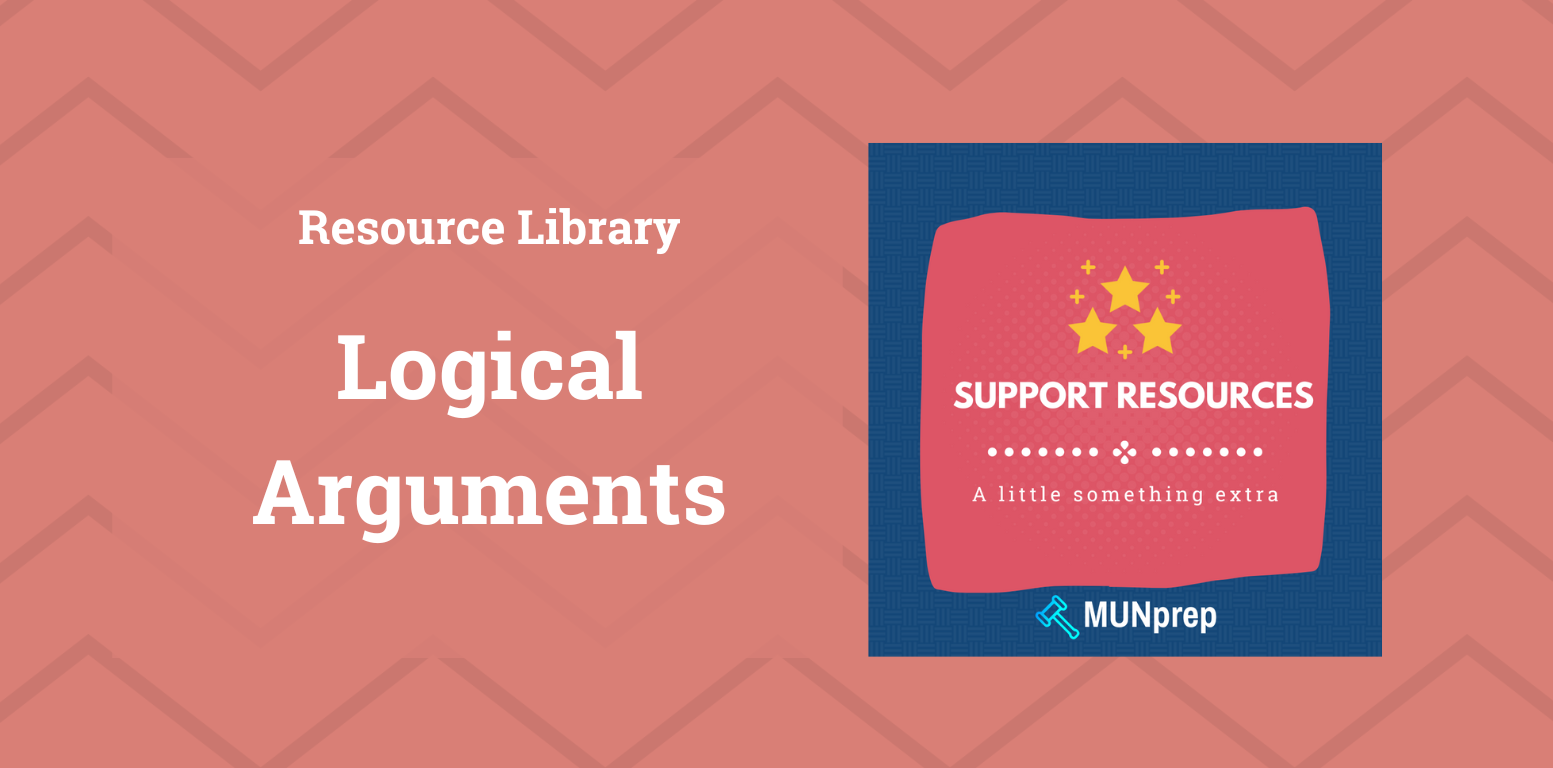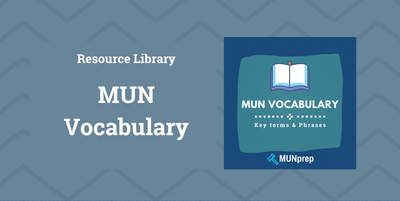Logical Arguments: A Comprehensive Guide

Logical arguments are the cornerstone of effective communication in debates, negotiations, and policymaking. Whether you’re participating in Model United Nations (MUN), engaging in classroom discussions, or advocating for policy change in a public forum, knowing how to structure and present a sound argument can greatly influence how others perceive and respond to your position.
In this guide, we’ll break down what makes a logical argument, discuss different types of arguments, and show you how to craft persuasive points that resonate with your audience.
What Are Logical Arguments?
A logical argument is a series of statements or premises leading to a conclusion. If done correctly, these premises and the way they connect will guide an audience to accept your point of view.
- Premise(s): The factual statements or evidence that form the foundation of the argument.
- Reasoning: The logical process that explains how or why the premises support the conclusion.
- Conclusion: The main claim or stance that you want others to accept.
Check out our guide on Debate Skills here!
Why Are Logical Arguments Important in MUN?
- Clarity and Credibility - Delegates who rely on well-researched and structured reasoning are taken more seriously. A solid logical argument indicates thorough understanding and respect for factual accuracy.
- Persuasion - A clear link between evidence and conclusion can sway opinions and secure allies in committee. Solid arguments reduce misunderstandings and command attention.
- Effective Resolutions - Arguments built on sound logic are more likely to address core issues successfully. Proposals and policies grounded in reason, rather than assumptions, produce meaningful outcomes.
Common Situations Where Logical Arguments Arise
- Opening Speeches in a Moderated Caucus: Establishing a firm, logical stance sets the tone for subsequent debates.
- Unmoderated Caucus Discussions: Negotiating or resolving conflicts often hinges on compelling, logical points.
- Q&A Sessions: Presenting clear arguments in response to challenges or questions can maintain your credibility and guide consensus.
Types of Logical Arguments
While all logical arguments share the basic premise-conclusion structure, the way those premises lead to a conclusion can vary. Below are four common types of arguments you can use in MUN and other debate contexts.
1. Deductive Arguments
A deductive argument is structured so that if all the premises are true, the conclusion must also be true. The link between premises and conclusion is intended to be airtight.
- Example:
- All UN member states are sovereign nations.
- Germany is a UN member state.
- Therefore, Germany is a sovereign nation.
- Why It’s Useful in MUN:
Deductive arguments provide certainty. If your premises are indisputable facts (such as definitions or universally accepted principles), you can anchor your stance in deductive logic for a rock-solid foundation.
2. Inductive Arguments
An inductive argument bases its conclusion on observations or examples, leading to a probable (but not guaranteed) conclusion.
- Example:
- In the past three UN conferences, the majority of delegations supported resolutions on sustainable development.
- Most delegates at this conference have shown a similar interest in environmental issues.
- Therefore, it’s likely that a new resolution on sustainable development will gain widespread support.
- Why It’s Useful in MUN:
Inductive arguments help you predict likely outcomes and tendencies. They’re especially handy when you need to gauge committee mood, forecast voting behavior, or discuss trends.
3. Analogical Arguments
An analogical argument relies on a comparison between two or more similar situations, inferring that what holds true in one scenario may also work in another.
- Example:
- The European Union successfully reduced emissions through a carbon trading system.
- The African Union is also a multi-state organization aiming to lower emissions.
- Therefore, adopting a similar carbon trading mechanism could benefit the African Union.
- Why It’s Useful in MUN:
Analogical arguments can strengthen proposals by highlighting existing success stories. By drawing parallels with known or proven models, you can alleviate concerns and show feasibility.
4. Abductive Arguments (Inference to the Best Explanation)
An abductive argument proposes the most plausible explanation given the available evidence, even if multiple possibilities exist.
- Example:
- A country’s voting pattern suddenly shifted after it signed a new trade deal.
- There are no public indications of a major leadership change or domestic policy overhaul.
- Therefore, the trade deal is likely the primary reason for the shift in voting behavior.
- Why It’s Useful in MUN:
Abductive reasoning helps delegates navigate complex international relations where multiple factors are at play. Arguing for the “best fit” explanation encourages practical understanding and strategic planning.
Components of a Strong Logical Argument
- Research and Evidence
- Use Reputable Sources: UN reports, NGO briefings, and academic journals.
- Verify Accuracy: Facts must be correct and up to date.
- Match Data to Argument: Ensure your evidence directly supports your conclusion.
- Clear Structure
- Introduce Your Claim: Let delegates know your main position upfront.
- Organize Supporting Points: Group evidence logically; move from broad to specific or vice versa.
- Conclusion: Tie your points together and emphasize how they support your overall stance.
- Logical Consistency
- Realistic Connections: Make sure your evidence genuinely backs your conclusion.
- Focus: Keep your argument closely related to the topic or resolution at hand.
- Precision: Avoid jumping to oversimplified or sweeping conclusions.
- Persuasive Delivery
- Diplomatic Language: Politeness and respect bolster credibility.
- Highlight Key Points: Use verbal cues to make your strongest evidence stand out.
- Anticipate Objections: Prepare to address counterarguments swiftly and effectively.
Constructing Persuasive Arguments Step by Step
- Identify Your Goal
- Are you aiming for a policy change, resolution passage, or consensus-building?
- Decide which type of argument (deductive, inductive, analogical, or abductive) best suits your evidence and the nature of the debate.
- Gather Relevant Evidence
- Pull together facts, statistics, and examples that strongly support your main claim.
- Ensure the breadth and depth of your evidence align with the argument type.
- Develop a Logical Flow
- Introduction: Present the context and your overarching claim.
- Body: Lay out premises, evidence, and clear reasoning in a coherent sequence.
- Conclusion: Summarize how your points connect, reaffirm your stance, and end with a call to action if needed.
- Review and Refine
- Check for Coherence: Each section should naturally lead to the next.
- Practice Your Delivery: If speaking, rehearsal helps you stay clear and concise.
- Stay Open to Feedback: Fellow delegates or mentors can spot weaknesses or gaps in logic you might miss.
Identifying and Strengthening Weak Points
No matter the type of argument you employ, always be on the lookout for ways to refine your approach:
- Insufficient Evidence: Ensure you have enough data to justify your conclusion.
- Irrelevant Details: Steer clear of tangential points that don’t directly support your position.
- Unclear Reasoning: If others don’t grasp how your evidence leads to your conclusion, tighten the logical links.
For more insights on refining logical arguments, check out this resource.
Conclusion
Mastering different logical argument structures—deductive, inductive, analogical, and abductive—can vastly improve your effectiveness in debate settings like MUN. By selecting the right type of argument for each scenario, structuring your premises clearly, and backing up your points with solid evidence, you’ll be able to persuade fellow delegates and craft resolutions that stand on firm intellectual ground.
Remember: Logical clarity isn’t just about winning debates—it’s about contributing to constructive dialogue that yields practical and impactful solutions for real-world challenges.






